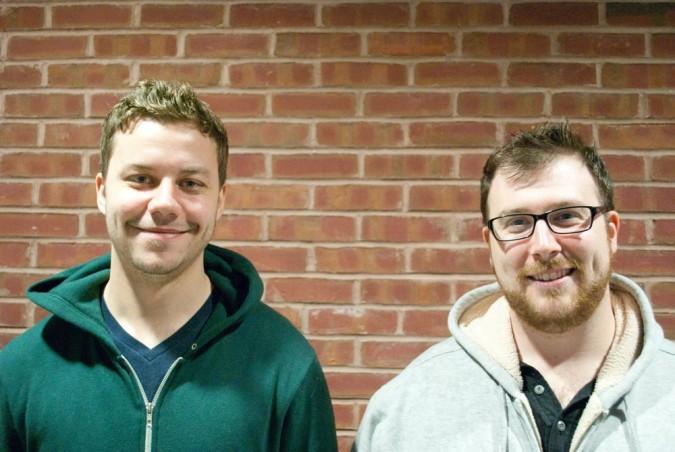A group of Ryerson graduates’ documentary film about Oakham House manager Joe Garisto is making waves at TVO Doc Studio contest. Susana Gómez Báez reports
A short documentary filmed and produced by four Ryerson graduates made its way into the top-five list of the TV Ontario (TVO) Doc Studio contest.
Open to amateur and accomplished filmmakers, the contest offers the winners an opportunity to have their documentary broadcasted on TVO as well as a mentoring session with Genie award-winning filmmaker Alan Zweig.
Joe tells the story of Giuseppe “Joe” Garisto, the current conference services manager at Oakham House, who was once a promising musician. Today, Garisto is dependent on prescription medication due to his struggle with anxiety, which, in the film, he says is the reason he is not a rock star.
Rich Williamson and Patrick Collins, the filmmakers and 2008 Ryerson film graduates, were compelled to tell Garisto’s story after working for him at Oakham. Williamson, 26, was a bouncer and Collins, 26, was a bar manager.
“During my time not only working there but also attending Ryerson, Patrick and I developed a relationship with [Joe],” Williamson said. “We’d heard his music and we knew he had slowed down and we wondered what he was doing with shows. He is this guy who just seems perfectly healthy, but [anxiety] is a curse for him.”
They started shooting the documentary as a volunteer project in March 2010, and continued until the following year. Originally, the documentary was made into a feature called Happy Joe. But it was edited in August 2011 into a short film, which was the version that was submitted for the TVO contest.
It was hard to keep focus because the film had a zero-dollar budget, according to co-producer Shasha Nakhai, a 2009 journalism graduate who worked alongside co-producer Brad Dworkin, another 2008 film graduate.
“When you’re not getting financial help, it’s hard to stay motivated,” Nakhai said. “It was our first big project out of school, so it was about applying all the things we learned and honing our skills.”
Joe received over 1,600 views on YouTube in a week, a much greater turn out than with Happy Joe.
“Anxiety is a really difficult sell because it’s really difficult to get [people] interested in it,” said Williamson. “I don’t think any of us can say for certain where anxiety comes from. We all experience it on a dayto- day basis but you can’t come up with any real answer as to what it is.”
To Collins, this was the most rewarding part of participating in the making of the film.
“I think [the documentary] gives us an understanding of how to deal with anxiety and how to end the stigma surrounding it,” Collins said. “We saw the TVO contest and we saw Joe as the perfect example to get [the message] across because of his anxiety, the neat character that he is, and his story.”
Williamson agrees.
“Joe is a really interesting person,” he said. “More so than a lot of people I know.”
But to Nakhai, the reason Garisto’s character is so successful is because most people can sympathize.
“A lot of people can relate, especially people that are from artsrelated fields,” she said. “I struggle with the inner conflict of money and the need to survive, yet I have a burning passion for this thing I want to do. But how do you turn them together to make a living?”
Although Joe did not make the final cut in the TVO contest, the film received over 600 more views than the winner. To the crew, making the project and receiving positive feedback was what made it all worth it. It pushed them to try harder and continue working.
“We haven’t been as aggressive in approaching broadcasters,” Nakhai said. “It might be a better thing that we didn’t win this contest … we now have the opportunity of selling [the film] to a broadcaster instead of just airing it for free.”












Leave a Reply